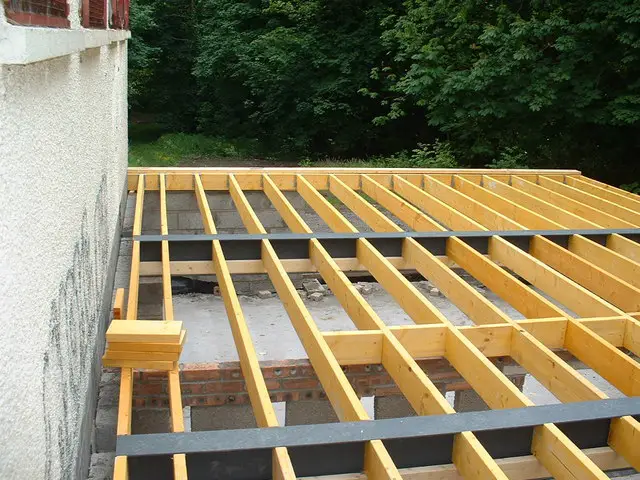If you’re building a new home, one of the first questions you’ll want to answer is: should I hire a general contractor?”
First, let me define what they do. A general contractor (commonly called a GC) is a professional who manages all aspects of a construction project from start to finish.
They are responsible for overseeing the entire building process, including hiring and supervising subcontractors, ordering materials, and ensuring that all work is done to the proper specifications and standards. If drawings are provided, they will ensure that the requirements of the drawings are met. They will serve as the main point of contact between the homeowner and the various trades involved in the construction process.
If you decide not to hire a general contractor, you’ll be responsible for managing the construction process yourself. This means that you’ll need to find and hire each individual subcontractor, order materials, coordinate deliveries, and ensure that everyone is working together effectively.
You’ll need to ensure that each trade is scheduled in the correct order and be ready for the next trade to come in afterward. You’ll also need to deal with any issues that arise during the construction process, such as delays, problems with the quality of work, or conflicts between the trades.
My opinion is that unless you have some amount of construction or related experience, a GC is well worth the investment!
Some general contractors offer design services as well. Consider using a design/build company versus a general contractor.
Here are a few of the pros and cons to consider.
Hiring a GC: Pros
- Saves time and hassle: A GC can take care of the day-to-day construction details, freeing you up to focus on other things.
- They manage subcontractors: A GC is responsible for finding and managing all of the subcontractors involved in the construction process, making sure that everyone is working together effectively.
- Scheduling: A GC will create and maintain the construction schedule. Their expertise will ensure that orders are made at the right time and work is done in the correct sequence.
- Ensures quality: A GC is experienced in construction and will make sure that all work is done to code and the proper specifications and standards.
- Provides peace of mind: With a GC overseeing the construction process, you can have peace of mind knowing that everything is being taken care of and that you won’t have to worry about any problems or delays.
- Reduces the risk of conflict: GCs know how to work with sub-contractors and may have long relationships with them. This can help to resolve conflicts when they arise.
- Contracts: You sign a single contract with the GC. They sign a contract with all of the other trades that they will be overseeing. This simplifies the process and gives you a single point of contact when issues arise.
Hiring a GC: Cons
- Adds cost: Hiring a GC means you’ll be paying for their services and expertise, which will increase your overall construction costs by 10-30%.
- Less involvement: By hiring a GC, you’re giving up some control over the construction process and may not be as involved in decision-making as you would like. (This could be considered a pro!)
- You’ll have to evaluate and negotiate the contracts of each of the subcontractors you hire. You’ll also have to process all of their payments.
- If you’re not familiar with the construction process, it may be difficult to assess the sub’s work or be familiar with building codes and conventions.
- Construction Loans: Although they are out there, you will have more difficulty finding a lender for a construction loan when you act as your own GC.
- Workload: This can become a second job or feel like a side gig once the process is underway.
- Despite your best efforts, you may hire a GC that provides sub-par services. For example, They may not be on-site as much as needed and, therefore, not adequately supervise the work, or they might not be responsive when you reach out.
Self-Performing Portions of the Work
You may not need to hire a GC to oversee every aspect of the home-building process. For example, you might not include landscaping in the GC’s scope of work because you can hire a landscaping company independently. Similarly, efforts like land clearing or paving are examples of easier work to manage yourself.
Or the GC might allow you to do some of the painting or trim work yourself so long as it doesn’t affect the other trade’s work or schedule.
You might also be able to finish certain aspects of the work yourself, like painting or trim work, so long as it doesn’t affect the other trade’s work or schedule.
Keep in mind that some jurisdictions will require a complete home to issue the Certificate of Occupancy. So check with your local building department first if you think you can complete the finishing touches “later.”
Also, remember that your wanting to do some of the trade work yourself might be a red flag or not an option with your general contractor. Imagine if your Uncle Bill is an electrician, and he said he would do the electrical work for you. Now imagine being the general contractor and having to schedule, coordinate, and evaluate the work of someone you haven’t hired and that is the client’s family member. What power does the GC have to get your Uncle to keep to the schedule, stop holding up other trades, or replace sub-par work?
Hopefully, these considerations will help you make an informed decision that works best for you and your custom home-building project. Let me know if the comments what path you took and how it worked out.


